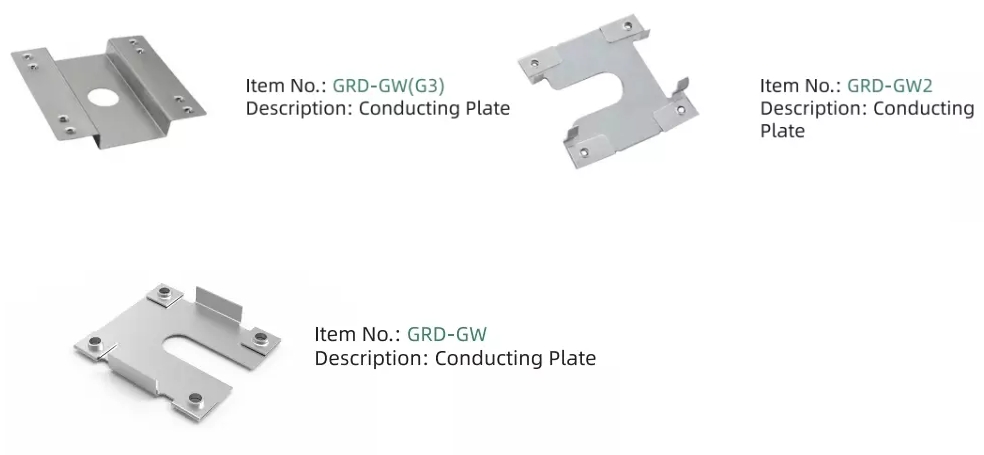Introduction:
Solar photovoltaic (PV) systems are an increasingly popular choice for renewable energy generation. To ensure the safe and efficient operation of these systems, various components and elements play crucial roles. One such component is the Solar PV Grounding Conducting Plate. In this blog post, we will explore the importance of grounding conducting plates in solar PV installations and the benefits they offer in terms of safety, performance, and system longevity.

1. Establishing Electrical Safety:
Solar PV grounding conducting plates are essential for electrical safety in solar energy systems. These plates provide a low-resistance path for fault currents to dissipate safely into the ground. By establishing a reliable grounding system, they protect both the equipment and the occupants from electrical hazards, such as electric shocks and fire risks. Grounding conducting plates are designed to meet industry standards and regulations, ensuring compliance with electrical safety requirements.
2. Mitigating Lightning Risks:
Lightning strikes pose a potential threat to solar PV systems. The high voltage and current resulting from a direct lightning strike can damage the system's components and even cause fires. Grounding conducting plates, when properly installed, provide a path for lightning-induced currents to dissipate harmlessly into the ground, minimizing the risk of system damage and protecting the investment in solar panels and related equipment.
3. Improving System Performance and Stability:
Effective grounding is crucial for optimal system performance and stability. Grounding conducting plates help reduce electrical noise, electromagnetic interference, and voltage fluctuations, which can negatively impact the performance of sensitive electronic components in solar PV systems. By providing a stable electrical reference point, these plates help maintain consistent system operation, maximize power output, and improve overall system efficiency.
4. Protecting Against Ground Faults:
Ground faults, such as insulation failures or equipment malfunctions, can occur in solar PV systems. Grounding conducting plates, along with appropriate grounding mechanisms, enable the detection and correct response to ground faults. By providing a low-impedance path, these plates ensure that fault currents are promptly directed away from the system, minimizing the risk of equipment damage, electrical hazards, and system shutdowns.
5. Environmental Resilience:
Solar PV grounding conducting plates are designed to withstand the harsh outdoor elements. They are typically made from materials with excellent corrosion resistance, ensuring long-term durability and performance even in challenging climatic conditions. This resilience helps maintain the integrity of the grounding system over the lifespan of the solar PV installation, preserving the safety and effectiveness of the system for years to come.
Conclusion:
Solar PV grounding conducting plates are fundamental components in solar energy systems, providing crucial electrical safety, lightning protection, system performance optimization, and fault mitigation. By investing in high-quality grounding conducting plates and adhering to industry standards, solar PV installers and system owners can ensure the long-term reliability, efficiency, and safety of their solar installations.
A comprehensive and well-designed grounding system, including grounding conducting plates, is not only a regulatory requirement but also an essential aspect of responsible and sustainable solar PV installations.